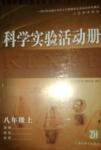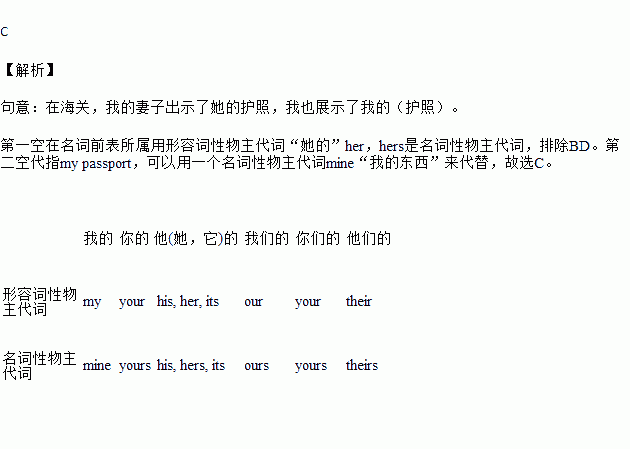题目内容
At the customs house my wife showed __________ passport and I showed _____________.
A.her, my B.hers, mine C.her, mine D.hers, my
 科学实验活动册系列答案
科学实验活动册系列答案Little New Year (Chinese: Xiaonian), usually a week before the lunar New Year. It is also known as the Festival of the Kitchen God. Here are six things you should know about the Little New Year, another sign of the start of spring.
Offer sacrifices to Kitchen God One of the traditions of the Little New Year is the burning of a paper image (画像) of the Kitchen God, dispatching (派遣) the god's spirit to Heaven to report on the family's conduct (行为) over the past year. The Kitchen God is then welcomed back to the home by putting up a new paper image of him beside the stove. And people think the Kitchen God will protect the whole family for another year. The sacrifices to the Kitchen God include pig's head, fish, fruit, boiled dumplings, barley sugar, and Guandong candy. |
|
House cleaning Between Laba Festival, on the eighth day of the last lunar month, and Little New Year, on the twenty-third day, families throughout China undertake a thorough house cleaning, sweeping out the old in preparation for the New Year. |
|
Eat Guandong candy Guandong candy is a traditional snack that Chinese people eat on the Festival of the Kitchen God. |
|
Paste (粘贴) paper-cuts to windows In the Little New Year, old couplets (对联) and paper-cuts from the previous Spring Festival are taken down, and new window decorations, New Year's posters, and decorations are pasted up. |
|
Bath and hair-cut As the old Chinese saying goes, whether they're rich or poor, people often have a haircut before the Spring Festival. The activity of taking a bath and haircut is often taken on the Little New Year. |
|
Preparations for Spring Festival People start to stock up (贮备) necessary preparations for the Spring Festival since the Little New Year. Everything needed to make offerings to the ancestors (祖先), entertain(招待) guests, and feed the family over the long holiday must be prepared in advance. |
|
1.When is the Little New Year?
A.A week before the New Year B.On the eighth day of the last lunar month
C.A week after the New Year D.On the twenty-third day of the last lunar month
2.What is the Chinese meaning of the underlined word “sacrifices”?
A.食物 B.祭品 C.礼物 D.贡献
3.Why do Chinese people burn the old paper image of the Kitchen God?
A.Because they want to get good luck in the coming year.
B.Because they want to sweep out the old in preparation for the New Year.
C.Because they want Heaven to know the family's behaviors over the past year.
D.Because they want to put up a new paper image of the Kitchen God.
4.Which is not the tradition in the Little New Year?
A.Offer sacrifices to ancestors. B.Do house cleaning.
C.Put up paper-cuts to windows. D.Eat Guandong candy.
5.Which sentence is FALSE according to the passage?
A.The Little New Year is also known as the Festival of the Kitchen God.
B.Chinese people put up the paper image of the Kitchen God on the stove.
C.In the Little New Year, New Year's posters and decorations are pasted up.
D.People start to stock up necessary food for the Spring Festival since the Little New Year.







